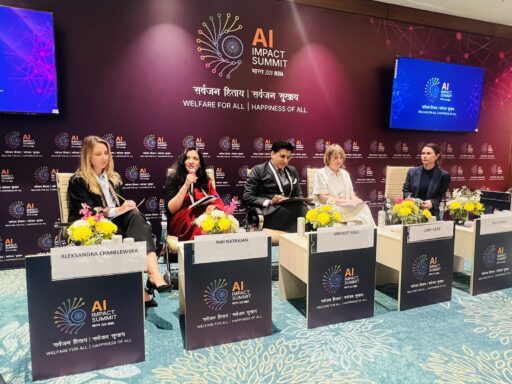Unlocking Pakistan’s digital potential: The economic opportunities of digital transformation and Google’s contribution
Pakistan’s vibrant technology sector has grown significantly in recent years and is well-positioned for further growth. The country produces over 20,000 Information Technology (IT) graduates each year, has nurtured over 700 tech start-ups since 2010, and has the fourth highest earning IT workforce in the world. Pakistan’s technology sector also has a large export element, with annual revenue from exports of IT and IT-enabled Services (ITeS) accounting for USD1.4 billion in 2020 – having grown at 10.8 percent per year since 2010. Furthermore, the government has identified the creation of a holistic digital ecosystem – most prominently in its “Digital Pakistan Policy” – as one of the key levers of economic growth.
Despite these significant achievements, the country can go further in its digital transformation journey. Pakistan’s online population has grown rapidly at 68 percent per annum from 2016 to 2019, and the Internet penetration rate reached 35 percent in January 2020. However, the country faces several hurdles to full digital transformation. For example, the World Economic Forum’s “Global Competitiveness Index 2019” ranked Pakistan as 73rd out of 141 countries on the ability of the active working population to possess and use digital skills. Digital transformation will also be important to boost its economic recovery efforts and enhance the long-term resilience of businesses in adapting to future “black swan” events in the post-pandemic era.
There is a significant economic prize attached to accelerating Pakistan’s digital transformation. AlphaBeta’s study (commissioned by Google) finds that digital technologies can unlock PKR9.7 trillion (USD59.7 billion) worth of annual economic value in Pakistan by 2030.
Key messages from the research include:
- There is a significant economic prize attached to accelerating Pakistan’s digital transformation. If fully leveraged by 2030, digital technologies could create up to PKR9.7 trillion (USD59.7 billion) in economic value. This is equivalent to about 19 percent of the country’s GDP in 2020. The sectors projected to be the largest beneficiaries are agriculture and food; consumer, retail and hospitality; and education and training. For example, machine learning algorithms have shown to be beneficial for the agricultural and food sector, where AI-powered technologies can monitor ecological conditions to determine whether crops need irrigation or not, reducing water use.
- There are three areas of action required for Pakistan to fully capture its digital opportunity: i) develop infrastructure to support the local tech ecosystem; ii) create a conducive environment for IT exports, and iii) promote innovation and digital skills. A range of policies by the Pakistani government has already been introduced to accelerate digital transformation such as “Right of Way” policy, which expedites the expansion of telecom infrastructure, and the “Brand Pakistan” campaign, which promotes the country’s exports via digital platforms. However, there is further scope of actions for Pakistan to consider such as increasing Internet availability through infrastructure investments, especially in rural areas (e.g., Thailand’s “Net Pracharat” programme to expand the national broadband network), creating an accommodative tax framework and ease restrictive data policies, and forging close public-private partnerships to improve the relevance of skills trainings (e.g., “Philippines Talent Mapping Initiative” which involved Philippines’ Department of Labour and Employment consulting with employers to create a framework to analyse the competencies of Filipinos).
- Through its programmes and products, Google is making contributions Pakistan’s digital transformation journey and supports benefits to businesses, consumers and the broader society. Google has been instrumental to advancing the country’s digital transformation journey in its contributions to the three areas of action. Google has and continues to invest in programmes, people and partnerships to support the “Digital Pakistan Policy”. These range from digital skilling for MSMEs, to training Pakistanis in emerging technologies like machine learning. Google is building strong partnerships with government agencies and industry associations to promote innovation through the “Nest I/O” technology incubator and supporting Pakistani start-ups. Google also indirectly supports the creation of more than 410,000 jobs in Pakistan. These jobs are created through the use of Google products that lead to businesses expanding their customer bases and increasing revenue, and subsequently hiring more staff to meet the additional demand.







